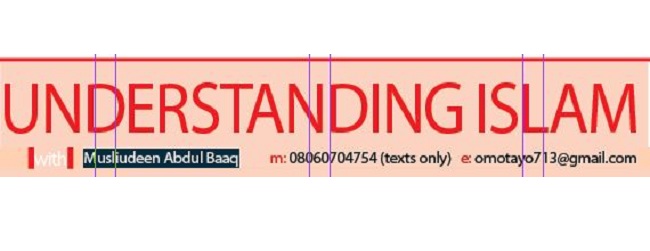IN the name of Allah, Most Gracious, Most Merciful.
“Today I have perfected for you your religion, and completed My blessing upon you, and approved for you Islam as religion” (Surah Al-Ma’idah, 5:3)
The verse above was revealed to Prophet Muhammad (SAW) during his first and only hajj. During the pilgrimage, the Prophet (SAW) bade farewell to the people.
Scholars have deemed the sermon he delivered during the pilgrimage to be his last. The sermon begins with: “O People. Listen well to my words, for I do not know; perhaps I may never meet you
Let us reflect on his universal message.
Prophet Muhammad (SAW) said: “O People! Verily, your lives and your wealth are sacred and forbidden upon you until you meet your Lord, as sacred as this day and this month are.”
Human dignity
Dhul Hijjah is one of the most sacred and significant months in the Islamic calendar. It is the month of hajj (pilgrimage), in which Muslims from all walks of life gather to seek Allah’s pleasure and fulfil the fifth pillar of Islam. Indeed, this is a month of increased spirituality. The Prophet (SAW) equated the sanctity of life and humankind with this sacred month. This indicates the importance of humanity and respect for human rights in Islam.
To attain peace in a society, no one shall harm or hurt one another, or even trespass upon another’s property, the Prophet (SAW) said. “Hurt no one, so that no one may hurt you,” he said. It is our responsibility to treat people how we want to be treated. Hurt can come come in physical, emotional or psychological, verbal or non-verbal forms.
We should continuously reflect on ourselves: our words and actions and how they affect other people. Seek peace, and you will find it, the Prophet (SAW) said in a hadith:
“A Muslim is a brother of another Muslim, so he should not oppress him, nor should he hand him over to an oppressor. Whoever fulfilled the needs of his brother, Allah will fulfil his needs; whoever brought his (Muslim) brother out of a discomfort, Allah will bring him out of the discomforts of the Day of Resurrection.” (Sahih Al-Bukhari)
As Muslims, we must show love and care for one another. The term ‘love’ refers to a pure intent for good and benefit to come to others. This love is celestial, not just earthly. Our love should extend to all creations of Allah (SWT).
Honour and respect for women
Women are not the property of men, and their rights are given by Allah (SWT), which no man can take away from them. The Prophet (SAW) emphasised the principles of mutual love, trust and respect: “O People, it is true that you have certain rights concerning your women, but they also have rights over you. Remember that you have taken them as your wives, only under Allah’s (SWT) trust and with his permission.”
The Prophet (SAW) taught us that women and men are partners; they complement one another. Being partners means that we share a lot of things together as husbands and wives. In creating a harmonious living environment, there is the need to understand one other and be kind to one another.
‘I enjoin you to treat women well and be kind to them’
The Prophet (SAW) uplifted the status of women during his lifetime. Several pre-Islamic patriarchal practices were reformed. Women were given voices and spaces to air their views and grievances. They played significant roles in the development of Islam.
We should continue to honour this legacy of Prophet Muhammad (SAW) by treating women around us with respect and kindness.
‘Avoid economic inequality’ and ‘give your wealth in zakat’
Prophet Muhammad (SAW) emphasised the importance of socio-economic justice. Economic inequality happens when wealth and opportunities are not distributed evenly in the society. This may lead to the poor becoming stuck at the lowest level of the socio-economic ladder.
The practice of zakat will create a just society. This wealth-sharing mechanism will ensure fair distribution of wealth for the socio-economic development of the community.
Allah (SWT) says in the Quran: “Establish prayer, pay alms-tax (zakat), and bow down with those who bow down.” (Surah Al-Baqarah, 2:43). This verse tells us that zakat is an obligation for every eligible Muslim. It is the third pillar of Islam. Islam prioritises purifying one’s wealth by sharing a fraction of it with the needy and other asnaf (beneficiaries of zakat).
Read Also: Soludo’s achievements underreported in Anambra — Law Mefor




